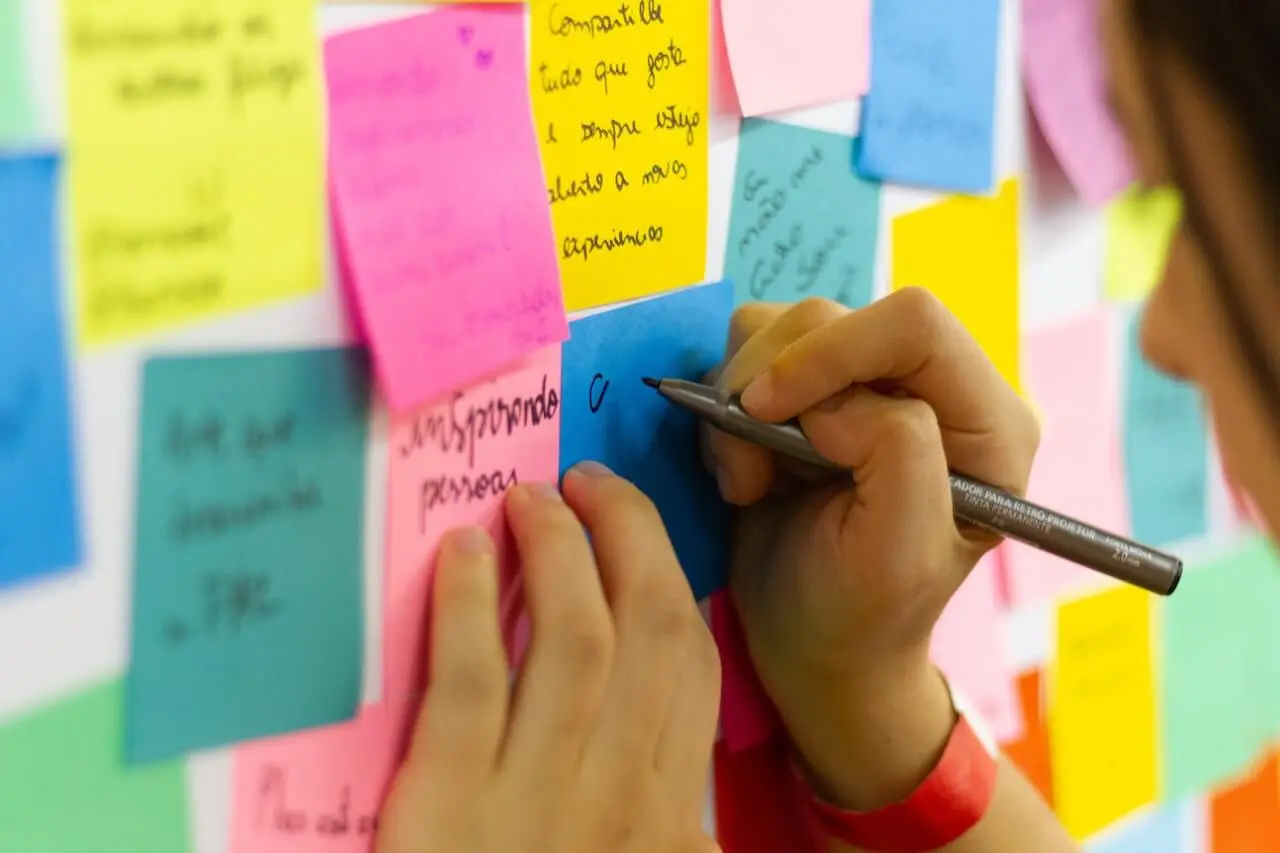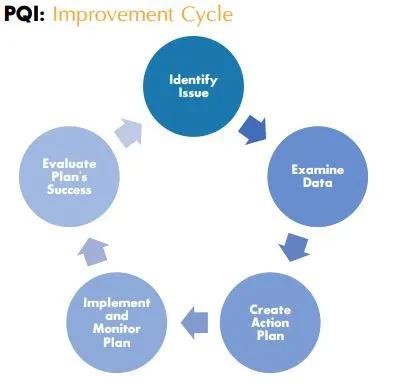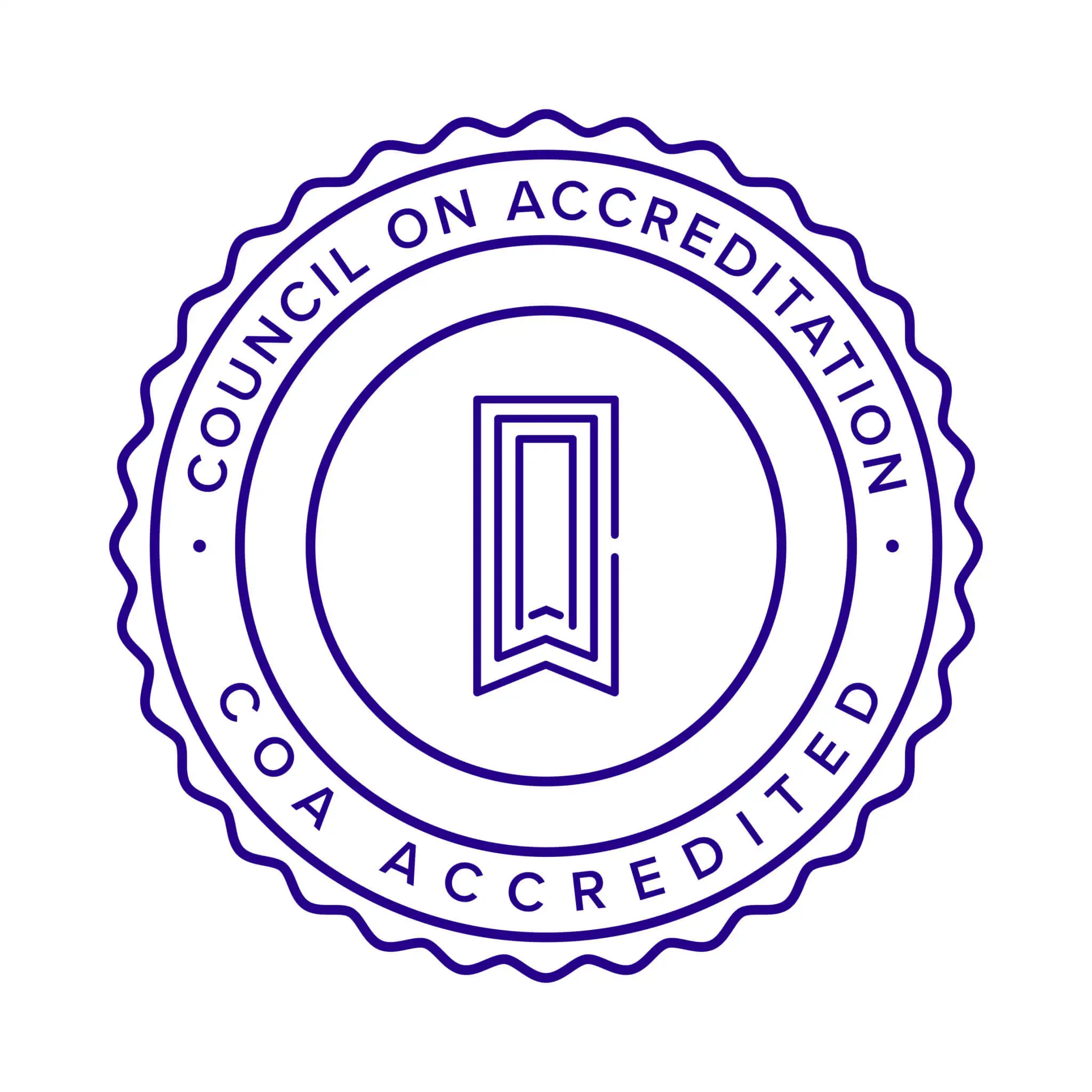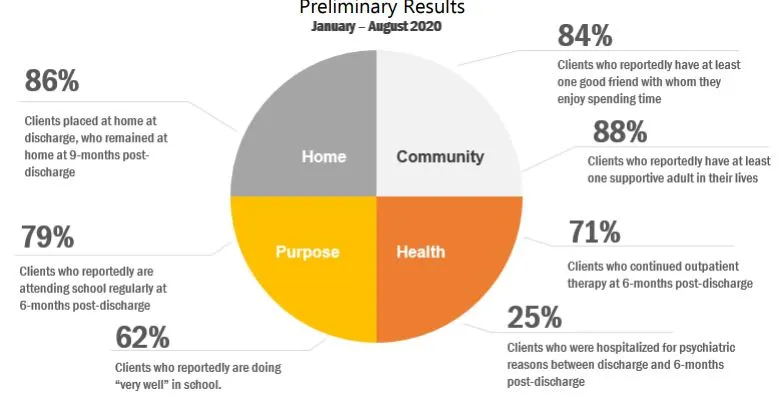Performance and Quality Improvement (PQI)
Learn how St. Mary's works to continuously ensure our programs and services are improving and offering the highest quality to our clients
Performance and quality improvement stretches across our agency
The Performance and Quality Improvement (PQI) program of St. Mary’s Home for Children promotes excellence and continuous improvement in all functions of the agency including client care and services provided.
Leadership endorses the collection and constructive use of data to promote high learning and high performance results. SMHFC values a culture where all stakeholders are encouraged to identify problems through use of data, assess possible solutions, create and implement action plans for positive change, and monitor/assess impact of the plan.
Emphasis is placed on correcting systems that impeded efficiency, satisfaction, compliance, service delivery and overall continual improvement. Performance and outcome expectations are communicated in a supportive manner and ensure protection for employees who identify areas of needed improvement. See below for our PQI plan as well as recent reports.

PQI Committee: In 2020, the PQI team introduced a new format for the monthly PQI Committee meetings. A much more data driven and accountable structure was put in place, including targets that can be easily measured. All programs and departments are represented in the report, and membership is mandatory for identified leaders.
Annual Initiatives: Annual PQI initiatives are selected and monitored as a part of the PQI Committee structure, which ensures all agency leaders are engaged and involved with performance and quality improvement efforts.
PQI Ad Hoc Reports: The PQI team encourages requests for data extraction and analysis from all internal departments. In 2020 we completed more than 18 Ad Hoc Reports in addition to structured monthly, quarterly and annual reporting. Several Ad Hoc Reports have been placed on a regular reporting schedule as a result of their value in day-to-day work.
St. Mary’s achieves “Expedited” re-accredidation
Every four years, the Council on Accreditation (COA) takes a close look at St. Mary’s services and programs to confirm we met or exceeded national best practice standards in 14 service and administrative sections. St. Mary’s not only passed with flying colors in 2020 but because we did not receive any out of compliance ratings in fundamental practice standards, we received what’s known as “Expedited” re-accreditation.
“Congratulations on this amazing achievement. COA’s program of quality improvement is designed to identify providers that have met high performance standards and made a commitment to stakeholders to deliver the very best quality services. COA is proud to recognize St. Mary’s Home for Children as an outstanding provider, and we wish you the very best in your continuing work.”
– Jody LevisonJohnson, COA President & CEO

Master Plan being developed
In 2020, through generous donations from Board members and others, St. Mary’s secured the funds necessary to do a Master Plan. This is necessary because it is imperative to take a more strategic approach to property investments and to envision how our campus could better reflect our nationally-recognized, high quality programs and services. The SLAM Collaborative has been hired to complete this plan. SLAM is an architecture firm with integrated construction services, landscape architecture, structural engineering, and interior design. Master planning will continue into 2021, with a design anticipated before summer.
Client outcomes surverys begin
In 2020, St. Mary’s began an outcomes survey for former residential program participants. Caregivers of former residential clients are contacted at 3, 6 and 9 months post-discharge to determine current level of functioning in 4 areas:
- Home: Is youth in a safe, stable, supportive living environment?
- Purpose: Does youth engage in meaningful daily activities such as job, school or volunteerism that promotes independence, income and resources to participate in society?
- Community: Does the youth have relationships and social networks that provide support, friendship and love?
- Health: Has the youth sustained basic physical and behavioral health, and overcome or manage health
challenges?
Outcomes data will help us to increase program effectiveness, contribute to policy discussions, and prevent recidivism.

